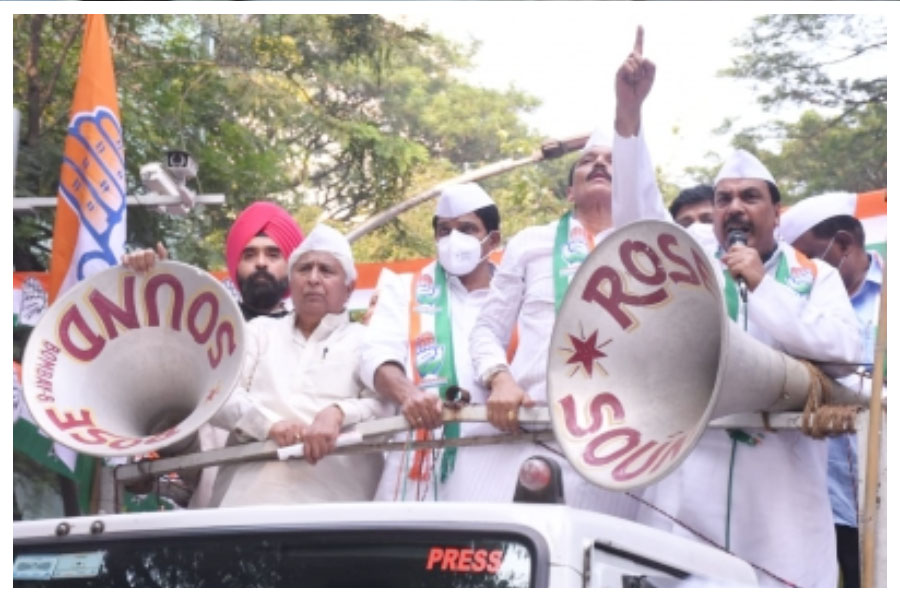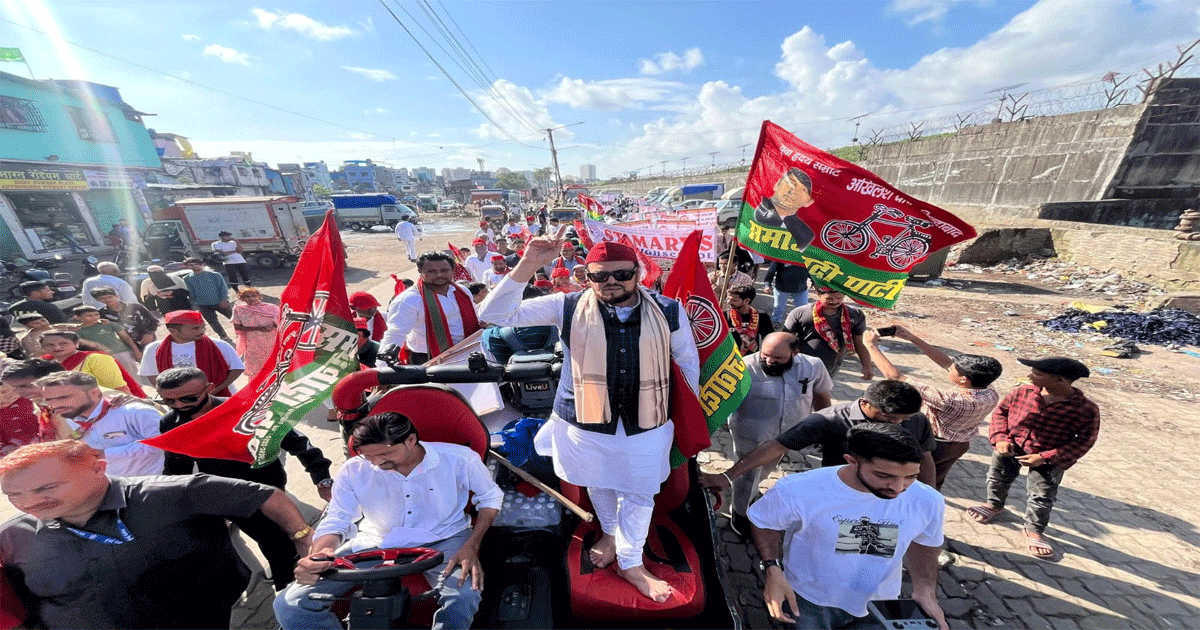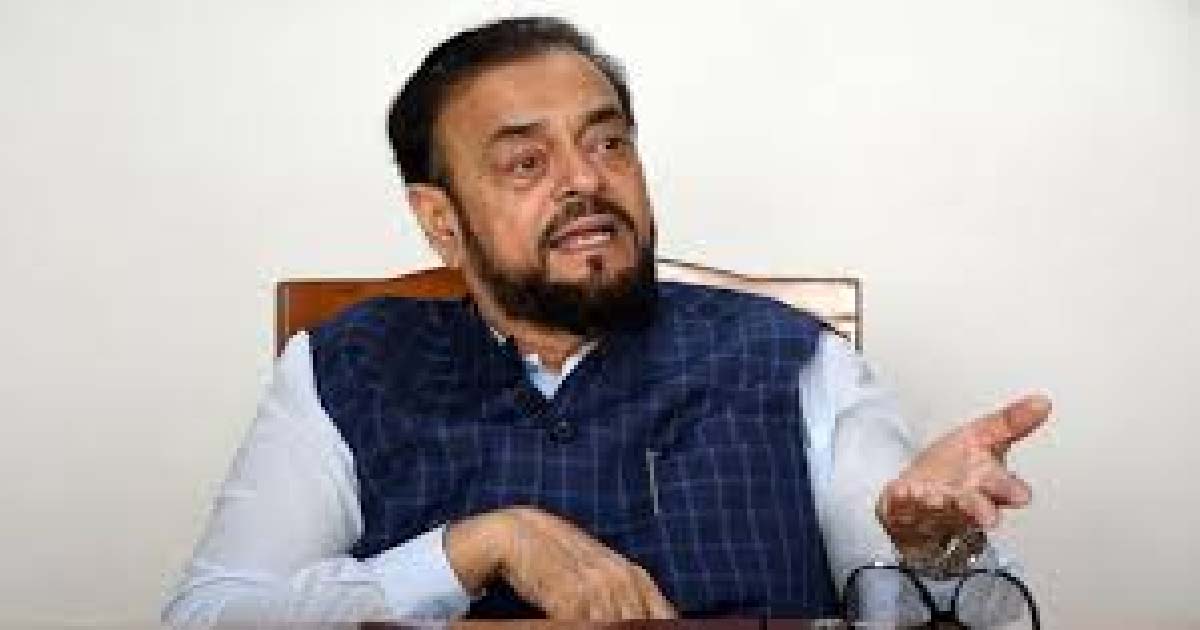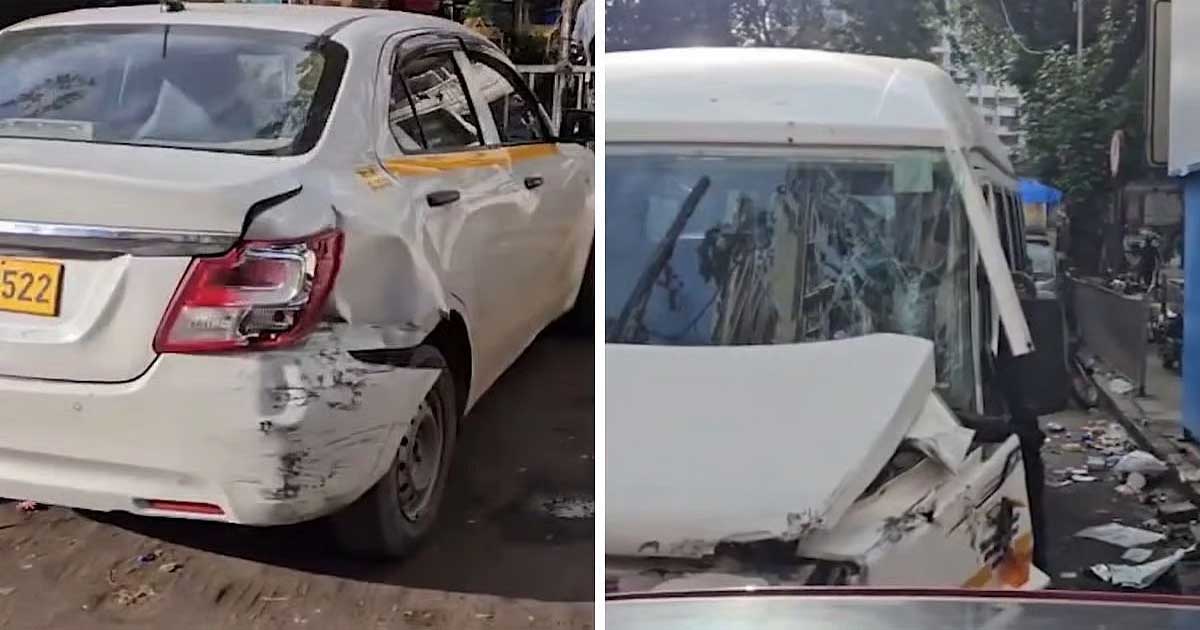Maharashtra
After ruling state for 52 years, Congress struggles to recapture Maharashtra

One of the few states that was once considered a Congress stronghold, Maharashtra slipped out of the Congress grip first in 1995 and then in 2014, and the party now struggles to make a comeback fighting all odds, within and outside.
The Congress has ruled the prosperous west Indian state for 52 years since it was founded on May 1, 1960 — either solo, or through alliances, or via one or the other breakaway factions.
It was in 1995 that the sun first set on the party and the first real non-Congress government of Shiv Sena-Bharatiya Janata Party alliance came to power and governed a full term.
The Congress bounced back in the 1999 Assembly elections, with a reduced majority, formed an alliance with the breakaway Nationalist Congress Party (NCP-1999), and they ruled for 15 years.
During the BJP wave unleashed by Narendra Modi, who became the Prime Minister in 2014, the Congress-NCP government was also washed away.
After five years, in 2019, it rebounded as an ally in the Maha Vikas Aghadi (MVA) government comprising Shiv Sena-NCP-Congress, which was toppled after two-and-a-half years, while the party grappled with severe ‘leakages’ at various levels.
“The problems largely started around a decade ago when the BJP took recourse to caste-communal politics, subverting institutions, false narratives, raising irrelevant matters while ignoring the real and burning problems of the economy, inflation, unemployment, farmers, women, youth, etc,” said Congress working President Naseem Khan.
He argued that now the people have realised the hollow claims of the Modi regime and are gradually veering around to clean, ethical, values and issue-based politics that Congress represents.
Khan denies that the state Congress is crumbling and pointed to its growing influence in the past few years at local, state and national levels, indicating how its mass support base remains largely intact.
A former four-time Congress MP feels that the state unit is plagued by infighting — as in other states or even at the national level — for which it had to pay dearly in 2014, and joining the MVA in 2019 was a ‘compromise’ to keep the BJP at bay.
“Many state leaders remain busy on social media, give lousy TV bytes or issue bland statements that are ignored� Instead, they must go for ‘mass-connect’, reach out to understand people’s grievances, open channels with other like-minded parties, take up public-oriented campaigns etc., since modern-day politics is very different from the pre-2000 era,” he said, requesting anonymity.
A present state office-bearer confided how the current AICC Maharashtra in-charge, S.K. Patil, is reportedly adapting “a lackadaisical approach, barely communicates in Hindi or rarely goes beyond Mumbai, cutting himself off from the ‘actual ground problems’ afflicting the party organisation”.
“Earlier, some of the AICC in-charges (like Mallikarjun Kharge) could even communicate in Marathi, would crack the whip during crises, tour different parts of the state, interact with district-level workers, and keep their fingers on the pulse of the party and the people,” he pointed out.
Mumbai Congress North Indian Cell Vice-President V.P. Singh feels many ‘inefficient or disinterested’ persons have been foisted both in the party at various levels, affecting the party workers’ morale and creating more rifts that are exploited by the opponents, citing various examples.
“What we need is to rebuild the party at the booth level with committed activists who will strengthen the district, the state and the national-level organisation. This aspect has been lost as many leaders prefer greenhorn sycophants over experienced performers with mass outreach,” rued Singh.
Khan confidently asserted that the Congress is readying for the Assembly polls, whenever they are held, and is optimistic of regaining its numero uno status soon, both in the Assembly and Parliamentary elections.
Fortunately, most leaders are buoyed by the ongoing Bharat Jodo Yatra led by Rahul Gandhi and the Indian National Congress Presidential elections, with a united chorus that it would do “a sea of good and invigorate the party from bottom to the top” for future challenges.
“The response to Rahulji across the BJY route is phenomenal and has ‘electrified’ the entire party. By the time it is completed, the Congress will re-emerge as a major force to reckon with in the 2024 elections� Already certain actions of the BJP betray their deep worries,” said Khan.
Several other party leaders at different levels echo similar sentiments, and strongly express the need “to rebuild the party on a war-footing”, opening party offices at the village levels (rural) or ward levels (urban), counter or expose the government policies at all levels, aggressively woo the media, and top national leaders should tour different states regularly for feedback.
In conclusion, notwithstanding the conviction by many leaders, the Congress in the state indeed faces a tough challenge to resurrect itself to its preeminent status — before it ‘leaks’ afresh�
Maharashtra
Anti-drug rally of Govindi Samajwadi Party leader and MLA Abu Asim Azmi

Mumbai: A massive anti-drug rally was taken out today under the leadership of Samajwadi Party MLA Abu Asim Azmi to draw attention to the serious problem of drug addiction and illegal drug trade in Mankhurd Shivaji Nagar assembly constituency and to create public awareness against it.
Thousands of workers and local citizens participated in the rally. Protesters took to the streets and demanded strict action against the illegal drug trade and appealed to the youth to stay away from drugs.
The main objective of the rally was to free the youth of the area from the clutches of drugs and to put pressure on the administration to stop this illegal trade. Abu Asim Azmi himself led the rally and stressed the need for immediate and strict action against the drug problem in the area. Not only party workers but also a large number of mothers, sisters, young and old citizens of the area participated in the demonstration, highlighting the seriousness of the problem.
The drug problem in Mankhurd Shivaji Nagar constituency has been a topic of discussion for many years and it is badly affecting the lives of local citizens. By organizing this rally, MLA Azmi has once again shown his determination to solve this important problem faced by the citizens of his constituency. Speaking on the occasion, MLA Abu Asim Azmi warned the administration: “Immediate and strict action should be taken against those involved in the illegal drug trade, otherwise the Samajwadi Party and the local citizens will intensify the protest.” The rally proved to be an important rally in drawing attention to the social and health problems of the Mankhurdshivaji Nagar area.
Maharashtra
A new police station should be established in Govandi Shivaji Nagar. Maharashtra SP leader Abu Asim Azmi demands from Police Commissioner Devin Bharti

abu aasim aazmi
Mumbai: Maharashtra Samajwadi Party leader and MLA Abu Asim Azmi has demanded the establishment of a new police station in Shivaji Nagar constituency from Mumbai Police Commissioner Devin Bharti. He said that the old police station has been shifted to Mahada, which makes it very difficult to reach the police station from the SMS company area and it takes half an hour to an hour. In such a situation, a new police station should be established in Shivaji Nagar constituency. There has been an increase in drug abuse, crimes and other incidents in Shivaji Nagar and Govindi areas, along with an increase in the population here. It is necessary to establish a police station in proportion to the population, while the presence of police stations and personnel is not there in proportion to the population. He said that Police Commissioner Devin Bharti has said that after the recruitment of police, the police station will be established and manpower will be deployed in the police stations. Along with this, Abu Asim Azmi has also accused the local administration of irregularities in the distribution of funds along with the establishment of the police station. He said that now the corporation and The BMC election has not been held, there are Samajwadi Party corporators here but they are not being provided funds, but whoever joins the Shinde group is provided funds, this is complete injustice and therefore the funds should be distributed equally. He said that the government has no concern with the slum areas, the police presence will remain in Walkashore, Malabar Hill and Cuffe Parade, but there is no police presence in the slum areas and there is a shortage of them, that is why the bat chowki that we have built with our own funds in Govindi is also empty, there is no police personnel in it.
Maharashtra
Mumbai Accident: 1 Killed, 6 Others Injured As Speeding Tempo Traveller Crashes Into BEST Bus In Dadar

Mumbai: A speeding tempo traveller crashed into a BEST bus and two other vehicles in Dadar late Sunday night, killing one and injuring six, including three brothers. The victim was identified as Shahabuddin Zainulabdeen Shaikh, 37, a clothes vendor, said the Shivaji Park police, adding that medical examination confirmed that the driver, Sandesh Kumbhar, 27, was driving under the influence of alcohol.
Preliminary investigation revealed that Kumbhar, a resident of Wadala, was driving in a rash and negligent manner. According to BEST, the fatal mishap occurred around 11.30 pm near the Dadar Plaza bus stop, when a tempo traveller, heading towards Shivaji Park, lost control. It collided with the front right side of a BEST bus that was en route to Pratiksha Nagar from the Worli depot.
After crashing into the bus, the tempo traveller also struck a taxi and another tourist vehicle, damaging both. “The impact caused the bus to veer left, hitting pedestrians and passengers waiting at the stop. Shahabuddin, a pedestrian, died on the spot,” said an official.
Those injured were identified as brothers Rahul Padale, 30, Rohit Padale, 33, and Akshay Padale, 25. The remaining three are Vidya Mote, 30, Abhishek Rautkar, 24, and Abdul Nadir, 23. While Nadir is from Wadala, the rest are from Sion. They were immediately rushed to Sion Hospital with the help of the bus conductor and local police personnel. The police have registered a case of accidental death against Kumbhar.
-

 Crime3 years ago
Crime3 years agoClass 10 student jumps to death in Jaipur
-

 Maharashtra1 year ago
Maharashtra1 year agoMumbai Local Train Update: Central Railway’s New Timetable Comes Into Effect; Check Full List Of Revised Timings & Stations
-

 Maharashtra12 months ago
Maharashtra12 months agoMumbai To Go Toll-Free Tonight! Maharashtra Govt Announces Complete Toll Waiver For Light Motor Vehicles At All 5 Entry Points Of City
-

 Maharashtra1 year ago
Maharashtra1 year agoFalse photo of Imtiaz Jaleel’s rally, exposing the fooling conspiracy
-

 National News12 months ago
National News12 months agoMinistry of Railways rolls out Special Drive 4.0 with focus on digitisation, cleanliness, inclusiveness and grievance redressal
-

 Maharashtra11 months ago
Maharashtra11 months agoMaharashtra Elections 2024: Mumbai Metro & BEST Services Extended Till Midnight On Voting Day
-

 National News1 year ago
National News1 year agoJ&K: 4 Jawans Killed, 28 Injured After Bus Carrying BSF Personnel For Poll Duty Falls Into Gorge In Budgam; Terrifying Visuals Surface
-

 Crime12 months ago
Crime12 months agoBaba Siddique Murder: Mumbai Police Unable To Get Lawrence Bishnoi Custody Due To Home Ministry Order, Says Report












